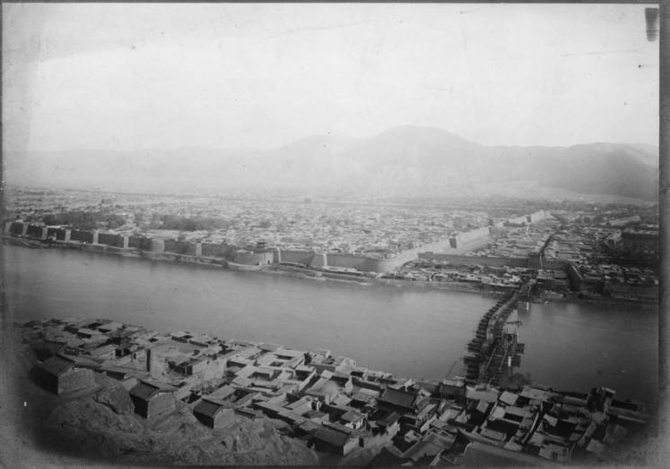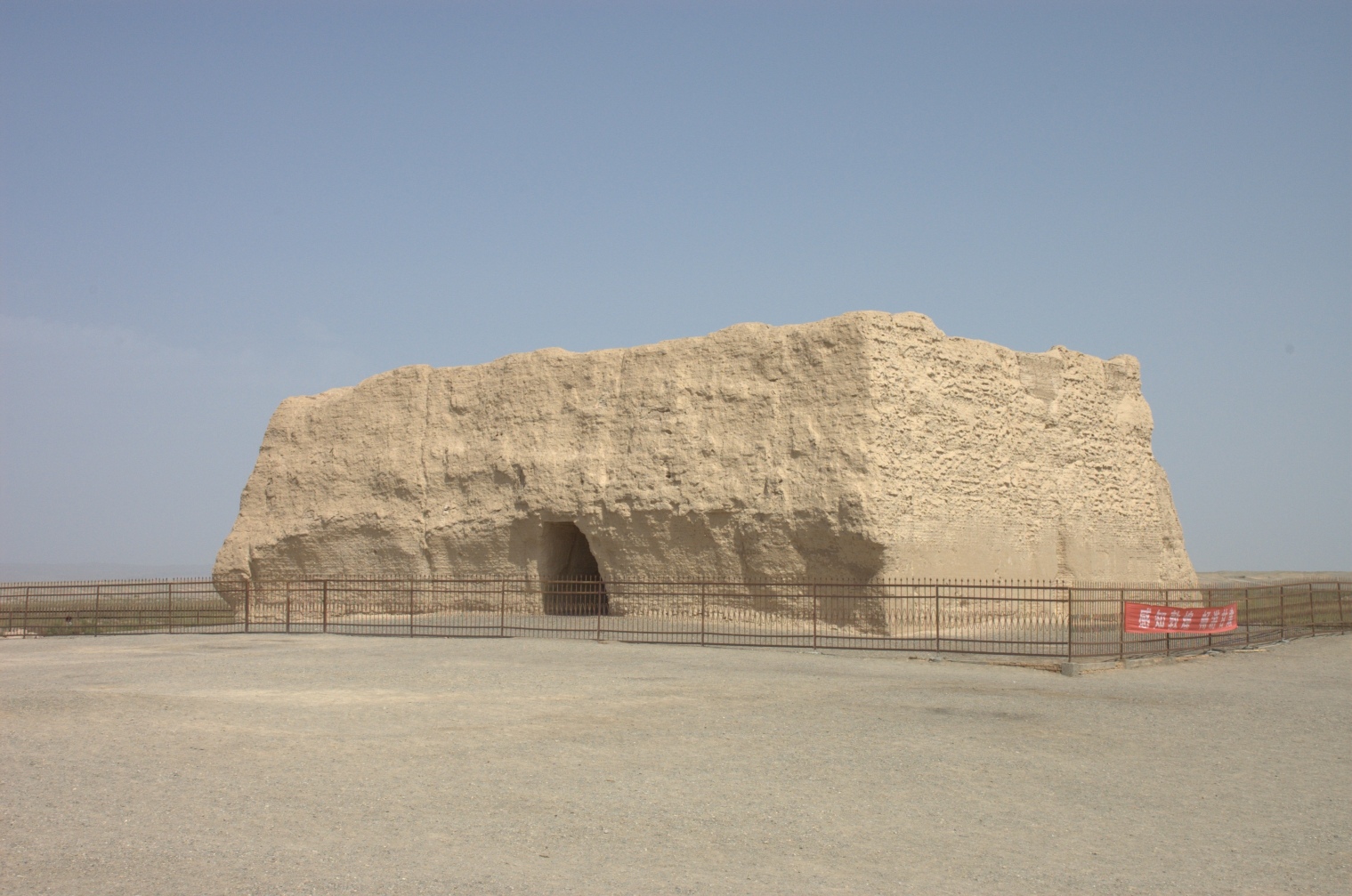|
Li Xiuping
Li Xiuping (; born 16 February 1963) is a former Chinese news anchor for China Central Television, the main state announcer of China. She won the Golden Mike Award in 2009. She is known all over China as an announcer for the 7:00 pm CCTV News program '' Xinwen Lianbo'', which has reach all over China on various networks and internationally, is one of the most watched news programs in the world. Biography Li was born in February 1963 in Lanzhou, Gansu Gansu (, ; alternately romanized as Kansu) is a province in Northwest China. Its capital and largest city is Lanzhou, in the southeast part of the province. The seventh-largest administrative district by area at , Gansu lies between the Tibet ..., with her father Li Linxu () was a bridge engineer who worked at the First Surveying & Designing Institute of the Ministry of Railways. she entered Communication University of China in 1983, majoring in broadcasting, where she graduated in 1987. After graduation, she joined the Gan ... [...More Info...] [...Related Items...] OR: [Wikipedia] [Google] [Baidu] |
Li (surname 李)
Li or Lee (; ) is a common Chinese surname, Chinese-language surname, it is the 4th name listed in the famous ''Hundred Family Surnames.'' Li is one of the most common surnames in Asia, shared by 92.76 million people in China, and more than 100 million in Asia. It is the List of common Chinese surnames, second most common surname in China as of 2018, the second most common surname in Hong Kong, and the 5th most common surname in Taiwan, where it is usually romanized as "Lee". The surname is pronounced as () in Cantonese, ''Lí'' (Pe̍h-ōe-jī, poj) in Taiwanese Hokkien, but is often spelled as "Lee" in Hong Kong, Macau, Taiwan and many overseas Chinese communities. In Macau, it is also spelled as "Lei". In Indonesia it is commonly spelled as "Lie". The common Korean name#Family names, Korean surname, "Lee (Korean surname), Lee" (also romanized as "I", "Yi", "Ri", or "Rhee"), and the Vietnamese name#Family name, Vietnamese surname, "Lý (Vietnamese name), Lý", are both derived f ... [...More Info...] [...Related Items...] OR: [Wikipedia] [Google] [Baidu] |
Lanzhou
Lanzhou (, ; ) is the capital and largest city of Gansu Province in Northwest China. Located on the banks of the Yellow River, it is a key regional transportation hub, connecting areas further west by rail to the eastern half of the country. Historically, it has been a major link on the Northern Silk Road and it stands to become a major hub on the New Eurasian Land Bridge. The city is also a center for heavy industry and petrochemical industry. Lanzhou is one of the top 70 major cities in the world by scientific research output as tracked by the Nature Index. The city hosts several research institutions, including, Lanzhou University, Lanzhou University of Technology, Northwest Normal University, Lanzhou Jiaotong University, Gansu University of Chinese Medicine, and Gansu Agricultural University. Notably, Lanzhou University is one of China's prestige universities as a member of the Project 985. History Originally in the territory of the ancient Western Qiangs, Lanzhou ... [...More Info...] [...Related Items...] OR: [Wikipedia] [Google] [Baidu] |
Gansu
Gansu (, ; alternately romanized as Kansu) is a province in Northwest China. Its capital and largest city is Lanzhou, in the southeast part of the province. The seventh-largest administrative district by area at , Gansu lies between the Tibetan and Loess plateaus and borders Mongolia ( Govi-Altai Province), Inner Mongolia and Ningxia to the north, Xinjiang and Qinghai to the west, Sichuan to the south and Shaanxi to the east. The Yellow River passes through the southern part of the province. Part of Gansu's territory is located in the Gobi Desert. The Qilian mountains are located in the south of the Province. Gansu has a population of 26 million, ranking 22nd in China. Its population is mostly Han, along with Hui, Dongxiang and Tibetan minorities. The most common language is Mandarin. Gansu is among the poorest administrative divisions in China, ranking 31st, last place, in GDP per capita as of 2019. The State of Qin originated in what is now southeastern Gansu and ... [...More Info...] [...Related Items...] OR: [Wikipedia] [Google] [Baidu] |
Communication University Of China
The Communication University of China (CUC) () is a leading public university in Beijing. It is one of the China's key universities of 'Double First Class University Plan', directly administered by the Ministry of Education of the People's Republic of China. CUC developed from what used to be a training center for technicians of the Central Broadcasting Bureau that was founded in 1954. In April 1959, it was upgraded to the Beijing Broadcasting Institute (BBI) () approved by the State Council. In August 2004, BBI was renamed Communication University of China. CUC is located in the eastern part of Beijing near the ancient canal, which occupies 463,700 square meters of land and a total of 499,800 square meters of buildings. History CUC's history dates back to March 3, 1954, when the first training class for broadcasting professionals was held by the then Central Radio Administration. This then led to the founding of Beijing Broadcasting College in 1958. On September 7, 1959, CUC's ... [...More Info...] [...Related Items...] OR: [Wikipedia] [Google] [Baidu] |
Xinwen Lianbo
''Xinwen Lianbo'' (, literally News Simulcast) is a daily news programme produced by China Central Television (CCTV), a state broadcaster. It is shown simultaneously by all local TV stations in mainland China, making it one of the world's most-watched programmes. It has been broadcast since 1 January 1978. This program is used as a medium for the state to announce government announcements and meetings, commentaries on major economic and policy issues, and the activities of national leaders. The program reflects official positions of the Chinese Communist Party on a wide range of matters. Some accuse the program as serving more as a means for the party to divulge its political agenda rather than to examine the day's important news events. It has been criticized both within China and internationally for its lack of neutrality. Despite declining popularity, it remains a widely watched program. Name, format and distribution There is no standard English translation of the name. Va ... [...More Info...] [...Related Items...] OR: [Wikipedia] [Google] [Baidu] |
China Central Television
China Central Television (CCTV) is a Chinese state- and political party-owned broadcaster controlled by the Chinese Communist Party (CCP). Its 50 different channels broadcast a variety of programing to more than one billion viewers in six languages. However, news reporting about topics sensitive to the CCP is distorted and often used as a weapon against the party's perceived enemies, according to Freedom House and other media commentators. CCTV is operated by the National Radio and Television Administration which reports directly to the CCP's Central Propaganda Department. CCTV was established on 1 May 1958 as a state-owned propaganda outlet. CCTV has a variety of functions, such as news communication, social education, culture, and entertainment information services. As a state television station it is responsible to both the Central Committee of the Chinese Communist Party and the State Council. It is a central player in the Chinese government's propaganda network. Hist ... [...More Info...] [...Related Items...] OR: [Wikipedia] [Google] [Baidu] |
Zhang Chunxian
Zhang Chunxian (; born 12 May 1953) is a Chinese politician best known for his term as the Communist Party Secretary of the Xinjiang Uyghur Autonomous Region, and the Political Commissar of the Xinjiang Production and Construction Corps from 2010 to 2016. From 2005 to 2010 he was the Party Secretary of Hunan Province. Early life Born into an ordinary family in Yuzhou, Henan province, Zhang joined the military at the age of 17. After four years in the army, he went back to his hometown to work on a farm. He then went to school at the Northeastern Heavy Machinery Institute (now Yanshan University). Career After graduating, he obtained a state-assigned job at the No. 3 Machinery Ministry, working as an aerospace engineering technician. At a research institute under the ministry, Zhang quickly made a name for himself and rose through the ranks, eventually becoming leader of the institute. In 1991, he was identified as a young talent by the party organization. He was transferred t ... [...More Info...] [...Related Items...] OR: [Wikipedia] [Google] [Baidu] |
Gansu Television
Gansu (, ; alternately romanized as Kansu) is a province in Northwest China. Its capital and largest city is Lanzhou, in the southeast part of the province. The seventh-largest administrative district by area at , Gansu lies between the Tibetan and Loess plateaus and borders Mongolia (Govi-Altai Province), Inner Mongolia and Ningxia to the north, Xinjiang and Qinghai to the west, Sichuan to the south and Shaanxi to the east. The Yellow River passes through the southern part of the province. Part of Gansu's territory is located in the Gobi Desert. The Qilian mountains are located in the south of the Province. Gansu has a population of 26 million, ranking 22nd in China. Its population is mostly Han, along with Hui, Dongxiang and Tibetan minorities. The most common language is Mandarin. Gansu is among the poorest administrative divisions in China, ranking 31st, last place, in GDP per capita as of 2019. The State of Qin originated in what is now southeastern Ga ... [...More Info...] [...Related Items...] OR: [Wikipedia] [Google] [Baidu] |



